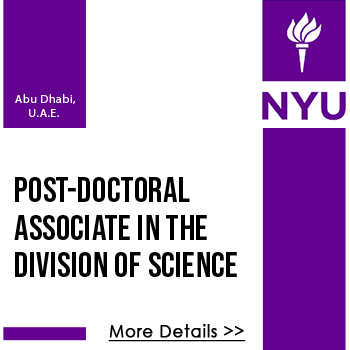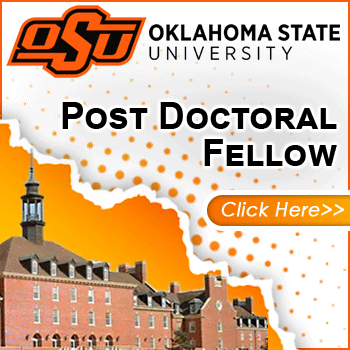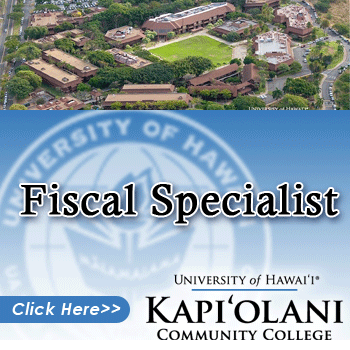
Postdoctoral Fellow II
Job Description
Full job description
Overview:
The Department of Wildland Resources in QCNR encompasses research in applied terrestrial ecology, including the ecology and management of wildlife, forests, rangelands, conservation biology, and climate change adaptation. Award-winning faculty teach courses that prepare students for professional careers in many natural resources fields, including programs accredited by the Society of American Foresters and the Society for Range Management and aligned with the Society of Ecological Restoration.
University Highlights:
The university provides a Dual Career Assistance Program to support careers for partners who are also seeking employment. Additionally, USU is committed to providing access and reasonable accommodations for individuals with disabilities. To request a reasonable accommodation for a disability, contact the university’s ADA Coordinator in the Office of Human Resources at (435) 797-0122 or hr@usu.edu.
About the Region
Executive Director of the Office of Equity Matthew Pinner, discrimination@usu.edu, Distance Education Rm. 401, 435-797-1266
We seek a Postdoctoral Fellow II in Quantitative/Spatial Ecology in the Utah State University Department of Wildland Resources. This is a two-year National Science Foundation-funded position to investigate spatial scale-explicit distribution modeling for North American birds. The overarching goals of the project are to identify the spatial scales at which environmental parameters influence species’ distributions (so-called scales-of-effect), and discover potential ecological or biological mechanisms that generate intra- and inter-specific variation in scales-of-effect. The successful candidate will use data from the eBird platform to estimate the species-environment relationships of North American birds using multi-scale, scale-explicit techniques. The specific focus of this position will include estimating species-specific scales-of-effect across North American birds, and developing a ‘scaling algorithm’ to predict species’ scales-of-effect using existing species’, environmental, ecological or other variables. The project includes opportunities for engaging with collaborators at the Cornell Lab of Ornithology and Natural Resource Managers including the Utah Division of Wildlife Resources, and mentoring graduate and undergraduate students.
The position will ideally be located in Logan, UT, on the main campus of Utah State University, but fully remote-work will be considered for exceptional candidates within the U.S. This is a full-time, Postdoctoral Fellow position with salary depending on experience, and includes full benefits (13 paid holidays, 22 days of paid leave and 12 days of sick leave per year, competitive health benefits packages, and a fully-vested 14.2% employer retirement contribution). The successful candidate will also have travel funds for an in-person meeting with collaborators at the Cornell Lab of Ornithology (Ithaca, NY), and at least 2 scientific conferences. This Postdoctoral position will be available for an initial duration of one year with potential for extension for a second year depending on performance.
Responsibilities:
- Access, organize, filter eBird-based species count checklists for North American birds during study period
- Estimate multi-scale occurrence models for North American birds
- Work with mentees to curate a species trait database for North American birds
- Develop a predictive scale-of-effect model using occurrence estimates and trait database predictors
- Write reports/manuscripts
- Meet with collaborators and conservation decision-makers on research results
Minimum Qualification:
- Applicants must have a PhD in Ecology, Biology, or a related field with a strong quantitative background
Preferred Qualifications
- Experience with R and analyzing spatial datasets
- Proficiency in ecological modeling, data analysis, and working with large datasets
- Record of success conducting research, evidenced by publication in peer-reviewed journals
Along with the online application, please attach:
- Resume/CV to be uploaded at the beginning of your application in the Candidate Profile under “Resume/CV"
- Name and contact information for 3 professional references to be entered into Candidate Profile. (Letters will only be requested for the final applicants.)
- Cover letter to be typed/pasted at the end of your application, indicating how you meet the qualifications of the position, why you are interested in this position specifically, how this position might support your career goals, and why you might be a good fit for this project
**Document size may not exceed 10 MB.**
Advertised Salary: Minimum $60,000; Commensurate with experience, plus excellent benefits ADA:
Employees work indoors and are protected from weather and/or contaminants, but not, necessarily, occasional temperature changes. The employee is regularly required to sit and often uses repetitive hand motions.
College/Department Highlights:
The S. J. & Jessie E. Quinney College of Natural Resources is nationally and internationally recognized for its research, extension, and teaching on natural and socio-environmental ecosystems. It is a high-impact college at Utah State University with over $15M in research funding annually, 55 tenure-track faculty in three departments, and close partnerships with federal and state natural resource agencies.
The Department of Wildland Resources in QCNR encompasses research in applied terrestrial ecology, including the ecology and management of wildlife, forests, rangelands, conservation biology, and climate change adaptation. Award-winning faculty teach courses that prepare students for professional careers in many natural resources fields, including programs accredited by the Society of American Foresters and the Society for Range Management and aligned with the Society of Ecological Restoration.
Founded in 1888, Utah State University is Utah’s premier land-grant, public service university, with a strong commitment to excellence, access, and inclusion, empowering people to lead successful lives of involvement, innovation, and impact. Utah State provides high-quality education to 27,500-plus students locations throughout the state, including at three residential campuses, eight statewide campuses, and 23 education centers. USU Online educates students from all 50 states and 55 countries. For over 25 years, USU Extension has served and engaged Utahns in all of Utah’s counties. As an R1 research institution, Utah State is dedicated to advancing knowledge through research and scholarly activities, providing a high-quality undergraduate and graduate education at an affordable price.
Utah State is committed to cultivating a community of inclusive excellence where all perspectives, values, cultures, and identities are acknowledged, welcomed, and valued. We seek to recruit, hire, and retain people from all walks of life who will champion excellence in education, research, discovery, outreach, and service. We believe that promoting a strong sense of community and belonging empowers and engages all members of USU to thrive and be successful. Forbes recognized our commitment to employees when they named Utah State the best employer in Utah in 2023. Learn more about USU.
The university provides a Dual Career Assistance Program to support careers for partners who are also seeking employment. Additionally, USU is committed to providing access and reasonable accommodations for individuals with disabilities. To request a reasonable accommodation for a disability, contact the university’s ADA Coordinator in the Office of Human Resources at (435) 797-0122 or hr@usu.edu.
About the Region
U.S. News and World Report ranked Utah first for its strong economy, fiscal stability, education, and health care. Outstanding outdoor recreational opportunities abound throughout the state, including five national parks, 43 state parks and recreation areas, and 15 alpine ski resorts. The home of USU’s main campus, Logan, is a city of 54,000-plus people in a picturesque mountain valley 80 miles north of Salt Lake City. The Logan metro area claimed the top spot in the Milken Institute’s 2022 ranking for best-performing small cities in the nation.
updated 04/2024
In its programs and activities, including in admissions and employment, Utah State University does not discriminate or tolerate discrimination, including harassment, based on race, color, religion, sex, national origin, age, genetic information, sexual orientation, gender identity or expression, disability, status as a protected veteran, or any other status protected by University policy, Title IX, or any other federal, state, or local law.
The following individuals have been designated to handle inquiries regarding the application of Title IX and its implementing regulations and/or USU’s non-discrimination policies:
Executive Director of the Office of Equity Matthew Pinner, discrimination@usu.edu, Distance Education Rm. 401, 435-797-1266
Title IX Coordinator Cody Carmichael, titleix@usu.edu, Distance Education Rm. 404, 435-797-1266
Mailing address: 5100 Old Main Hill, Logan, UT 84322
For further information regarding non-discrimination, please visit https://equity.usu.edu/, or contact:
U.S. Department of Education, Office of Assistant Secretary for Civil Rights, 800-421-3481, OCR@ed.gov
*Please mention you saw this ad on LGBTInHigherEducation.*





